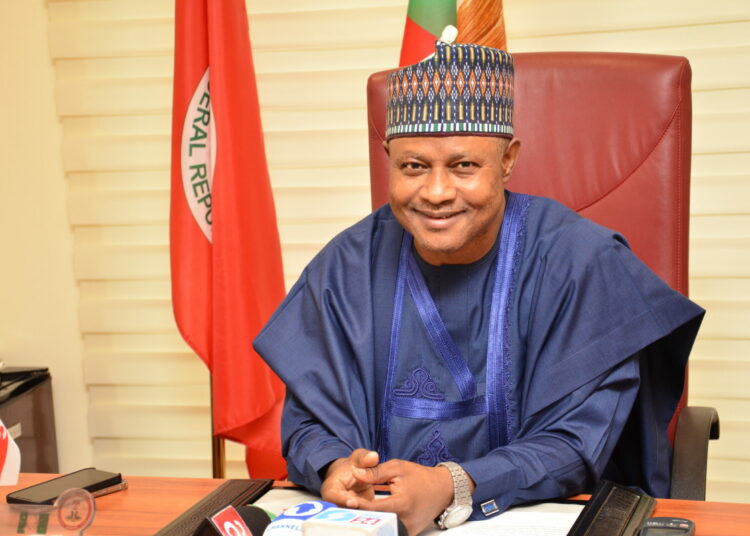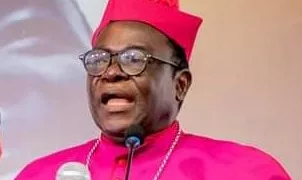In a recent commentary by Dele Sobowale in a piece titled “Bandits: FG should stop Kaduna Governor”, published in several traditional papers on Sunday, January 19, 2025, he canvassed an immediate intervention by the Federal Government (FG) against the Kaduna State Governor, Senator Uba Sani’s approach to find a lasting solution or bring to an end the ugly and debilitating stories of banditry and general insecurity in the state. While his concerns about the security situation in Kaduna are valid, his arguments overlook critical aspects of the ongoing efforts to restore peace and security in the state in particular and region in general.
Contrary to the utterly wrong notion or perception peddled in the piece as being an ‘enabler of crime and criminality’ or ‘aiding and abetting banditry and general insecurity’ which Dele Sobowale vainly labored to market, the effectiveness of the “Kaduna Model” which is a pragmatic approach for a lasting peace and security in Kaduna State cannot be over emphasized. The truth of the matter is that Dele Sobowale got it completely wrong. Wrong premise, wrong analogies, and wrong assumptions and so he inexorably arrived at a wrong conclusion. But he should be pardoned because he based his intervention on just what he read in a newspaper on what is supposedly going on in Kaduna State.
To begin with, Dele Sobowale ran the piece under the aegis of his “On The Other Hand” column. A cursory consideration of the name shows that the column is designed to explore the other side or the flipside, if you like. A casual observer may be tempted to see the column as a stage designed to propagate opposing arguments of an idea, policy initiative or whatever. But that is not the focus here.
Dele Sobowale, by his own admission in the piece under reference, claimed that: “Hitherto, I have commended the governor, who was managing a totally broken state, which he inherited from el-Rufai, with dexterity. He has not allowed a huge debt burden to weigh down government’s programmes. And, he has been doing his best to mend the cracks in ethnic relationships which characterised Kaduna State for eight years. I still stand by those comments.” Such eloquent testimony stands in stiff opposition to the attempt to now run down the efforts of the Governor Uba Sani administration to find a pragmatic approach to a knotty problem. In the Daily Trust report which forms the basis of Dele Sobowale’s intervention, the Chief Press Secretary to Governor Uba Sani, Malam Ibrahim Musa, emphasized that the state government, in collaboration with some federal agencies, established The Peace Dialogue Group, which then developed the ‘Kaduna Model,’ seen generally as a comprehensive framework for sustainable peace and security.
Mallam Musa said: “This model will include disarmament, demobilisation and reintegration, alongside investments in rural development and conflict resolution. It is a holistic approach that addresses both the symptoms and root causes of insecurity.
“The model entails engaging stakeholders tirelessly. This non-kinetic approach led to numerous meetings and extensive discussions, culminating in building bridges of trust, which made several senior bandit leaders to lay down their arms and embrace peace, along with their followers.”
The first and foremost thing to note, therefore, is to recognize that the “Kaduna Model” for peace and security was not a unilateral initiative by the state government but rather a collaborative effort involving various federal agencies. This model was designed to address the unique challenges posed by banditry in the region, taking into account the socio-economic dynamics and the historical context of the area. The joint design of this model underscores the importance of a coordinated approach to security, where both state and federal entities work together to create sustainable solutions. Sobowale’s call for the FG to intervene against the Kaduna Governor fails to acknowledge this collaborative framework, which is crucial for understanding the complexities of the security landscape in the state.
Moreover, the reopening of the Birnin Gwari Cattle Market, which had been closed for a decade, serves as a testament to the progress made under the “Kaduna Model.” This development not only signifies a return to normalcy for local traders and herders but also highlights the potential for economic revitalization in areas previously plagued by insecurity. The market’s reopening is a direct result of the concerted efforts of the Kaduna State government and federal agencies to restore peace and foster economic activity. Sobowale’s argument does not adequately recognize these positive strides, which are vital for the long-term stability of the region.
Additionally, Sobowale’s assertion that the state should abandon its responsibility for federal highways is misguided. Federal highways are critical arteries for trade and transportation, and they serve the interests of both the state and the nation. The indigenes of Kaduna rely on these highways for their livelihoods, and abandoning them would only exacerbate the challenges faced by local communities. The state government has a vested interest in ensuring the safety and security of these routes, as they are essential for economic activity and connectivity. It is imperative to understand that the security of federal highways is a shared responsibility, and the state government cannot simply relinquish its role in safeguarding these vital infrastructures.
Furthermore, the comparison of the Kaduna security situation to the Israel-Gaza conflict is fundamentally flawed. The dynamics of conflict in Kaduna are rooted in local socio-economic issues, including poverty, unemployment, and land disputes, rather than the ideological and territorial disputes that characterize the Israel-Gaza situation. Such a comparison oversimplifies the complexities of the challenges faced in Kaduna and detracts from the need for tailored solutions that address the specific circumstances of the region. It is crucial to approach the Kaduna security crisis with an understanding of its unique context, rather than drawing inappropriate parallels that do not contribute to meaningful discourse.
Finally, the preference for diplomacy and non-kinetic approaches to conflict resolution cannot be overstated. While military action may seem like a straightforward solution to the problem of banditry, it often leads to unintended consequences, including civilian casualties and further entrenchment of hostilities. A scorched earth military strategy risks alienating local communities and exacerbating the cycle of violence. Instead, a diplomatic approach that emphasizes dialogue, community engagement, and socio-economic development is more likely to yield sustainable peace. The “Kaduna Model” embodies this philosophy by prioritizing non-kinetic strategies that seek to address the root causes of insecurity rather than merely treating its symptoms.
In conclusion, while Dele Sobowale raises important concerns regarding the security situation in Kaduna, his arguments fail to consider the collaborative nature of the “Kaduna Model,” the significance of Kaduna getting involved in ensuring security in federal highways, the inappropriateness of comparing Kaduna to the Israel-Gaza conflict, and the necessity of a diplomatic approach to conflict resolution. It is essential to support the ongoing efforts of the Kaduna State government and federal agencies in their quest for peace and security, rather than undermining their initiatives with calls for intervention that do not take into account the complexities of the situation. A united front, grounded in collaboration and understanding, is the key to achieving lasting peace in Kaduna and beyond.
– Ahmed, a security and surveillance expert, writes from the FCT, Abuja.





